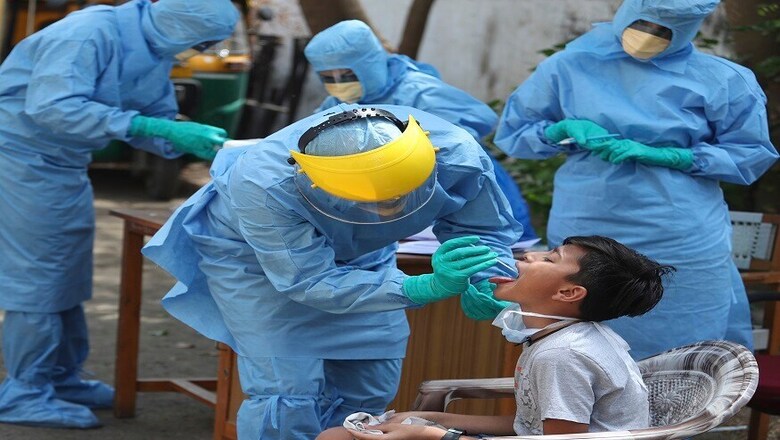
views
An article published by Australian academics of Indian-origin, analysing the factors determining the response of a country to the coronavirus pandemic, has termed India’s response to the crisis as outstanding.
The article, published by Umesh Sharma, Vinod Mishra, Mohan Yellishetty, Abhijit Bhide, Rajiv Padhye, with inputs from Milind Sathye, says that India undertook early steps to contain the spread of the novel coronavirus.
“India was aware of the high risk of foreign travelers spreading Covid-19 in the country and undertook early steps to slow down the spread. India canceled visas of foreign travelers from China, South Korea, and Iran on 26th February and all Indian residents returning from countries with known positive cases were put in isolation for 15 days,” the article, which was published on Medium, said.
In their article, the authors study the responses of Singapore, Canada, Germany, South Korea, Australia and India based on seven factors – Early response, extensive testing, stringent quarantine measures, use of technology, coordinated responses between Centre and states, financial packages for the vulnerable and future plans for economic sustenance.
The authors analyse a number of factors identified in the media, ranging for better health systems, the remoteness of a country, population density, and leadership. They note that all countries, except India, which is ranked 118, are placed amongst the top 50 in terms of their health ranking. The writers say that the healthcare systems can only explain “half the story or even less than that.”
They identified the coordinated efforts of the Indian states and union territories in supporting the national plan as a defining factor in India’s response.
“Different states in India are ruled by different political parties and implementing any national policy or plan at such a short notice is not easy. However, the country has shown remarkable solidarity and all states and union territories have supported the PM in implementing the national plan.”
The researchers also point to stringent contact tracing and the use of technology which was put in place in India. They remark that India followed strict measures to locate and quarantine any person who may have come in contact with a Covid-19 positive case.
“On 2nd April, it launched an app (Arogya Setu) that uses Geo tracking to alert a person who may have come in contact with a Covid-19 patient,” the article notes.
The writers take note of some criticism which India’s response has received but said that without doing so, it would have led to the deterioration of the situation.
“…A delayed start to the strict medical containment measures could have led to the worse health crisis and worsening economic crisis", the researchers said.
The article also highlights how a country cannot apply a strategy that has worked well in another country without paying particular attention to the local context and availability of resources. Citing Australia’s example, the writers say the country went “overboard” with spending money to contain the economic fallout of Covid-19.
“As per treasury estimates, the Australian Government has pledged a total of $320 billion (representing 16.4 per cent of annual GDP.) as of writing this note to support businesses and households with the economic fallout associated with COVID-19,” the article notes.
The article compares this to India’s package – the only developing country in the list – and calls it a “conservative and cautious approach towards spending money”
“India’s relatively modest relief package of US$ 24 Billion focused on covering food security and providing cash transfers to the most economically disadvantaged sections of the society.”
It further underscores the need for a global approach to dealing with the crises.
“Rather than thinking of a national strategy, we should now start thinking about a global strategy to fight the pandemic considering corona-virus does not follow immigration rules and can cross into any territory without a valid visa,” it concludes.



















Comments
0 comment